 By Rev. Ed Churchman
By Rev. Ed Churchman
Dogs and cats. Liberals and conservatives. Scientists and priests. All natural enemies, you’d say? Under most circumstances, it would seem that way, but maybe we’re looking at this sort of animosity all wrong. We’ve all seen those video clips of cats and dogs getting along like best friends, and not to mention that when we first purloined our English word ‘cat’ from Latin, we took it from ‘catulus’, meaning young dog. Last year in the UK the liberals and conservatives managed to form a coalition government to oust the socialists. So, maybe it’s time we looked at this age-old clash between the factions of science and religion, and see if we can’t forge a bit of a reconciliation, shall we, dudes?
So, what are these things of which we speak? Let’s take a look at what divides religion and science as they both strive to unravel and the mysteries of the universe for our benefit. Here are a couple of brief overviews based on my own observations about what’s what.
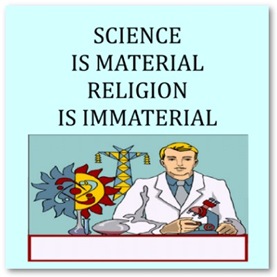 Religion – The profound belief in the way things are, and the faith in that truth. Most religions of the world are based on spirituality in one form or another, either atheistic (without a god), monotheistic (of one god) or pantheistic (of many gods). Each religion has an explanation of life and the world, from its creation to its purpose, even if sometimes those explanations of purpose get a little fuzzy. Sometimes religions splinter into separate factions, and sometimes those factions become religions themselves. All signs point to, overall, the fact that it can be hard to keep the faith.
Religion – The profound belief in the way things are, and the faith in that truth. Most religions of the world are based on spirituality in one form or another, either atheistic (without a god), monotheistic (of one god) or pantheistic (of many gods). Each religion has an explanation of life and the world, from its creation to its purpose, even if sometimes those explanations of purpose get a little fuzzy. Sometimes religions splinter into separate factions, and sometimes those factions become religions themselves. All signs point to, overall, the fact that it can be hard to keep the faith.
Science – The profound belief in the way things are, and the faith in that truth. Err, wait, that sounds familiar. Let me scroll up. Yeah, err, that’s kind of like religion. Science is a direct understanding of the universe through experimentation and logical progression and application of that knowledge to further that understanding. Science has its own explanation of life and the world, from its creation, but not its purpose (so no room for fuzziness there). Sometimes scientists disagree and set out to disprove the theories of others that have come before. All signs point to, overall, the fact that today’s truth is tomorrow’s bunkum.
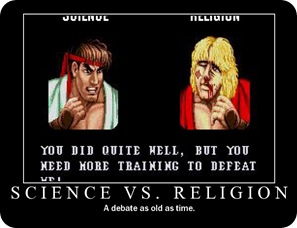 Hmm, actually, I’m starting to see a connection here. Let’s zoom in a bit and take a look at some of the more day-to-day aspects of these two philosophical giants.
Hmm, actually, I’m starting to see a connection here. Let’s zoom in a bit and take a look at some of the more day-to-day aspects of these two philosophical giants.
Priests – Those who study the teachings of holy texts and culminate the wisdom of their sect’s philosophy. They use this knowledge to aid the lay members of their community, to teach and to support and take care of their spiritual needs. When someone is less knowledgeable about the ways of deities or the spirit world they turn to a priest for guidance, and, with faith accept what is told to them.
 Scientists – Those who study the teachings of the scientific texts and culminate the knowledge of their scientific understanding. They use this knowledge to aid the laymen of the world, to inform and to nurture and heal of their physical needs. When someone is less knowledgeable about the ways of science and medicine they turn to a scientist or doctor for help, and, with faith accept what is told to them.
Scientists – Those who study the teachings of the scientific texts and culminate the knowledge of their scientific understanding. They use this knowledge to aid the laymen of the world, to inform and to nurture and heal of their physical needs. When someone is less knowledgeable about the ways of science and medicine they turn to a scientist or doctor for help, and, with faith accept what is told to them.
Wow, I did not see that one coming. But, hey, what does this mean? Could it be that science and religion are, in fact, pretty much the same thing?
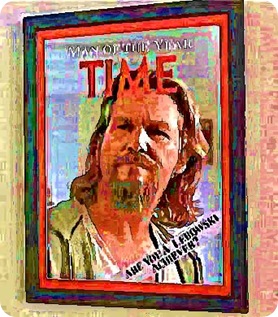 Well, there are those who would refute that claim. They might say things like "but science looks at the evidence and moves itself forwards". To which I would reply "but doesn’t religion also do this? Sure, most of the time it would appear they keep the faith and hold onto the facts as they understand them, but sometimes science does the same. There are plenty of examples of scientists and doctors who refuse to update their understanding of current scientific and medical practices because they believe the way they know it to be more than adequate an understanding. Conversely, Christianity is a splinter of Judaism, where they took new facts and moved on. The same with Islam, an even further extension of the Zionist faith, and then Rastafarianism, and the many splinter faiths within Judaism, Christianity and Islam. Not to mention the modernization of religions within society, retranslating the ancient words in their spirit to fit with the way things are now. Science can sometimes be stubborn and static, and religion can sometimes be open and progressive."
Well, there are those who would refute that claim. They might say things like "but science looks at the evidence and moves itself forwards". To which I would reply "but doesn’t religion also do this? Sure, most of the time it would appear they keep the faith and hold onto the facts as they understand them, but sometimes science does the same. There are plenty of examples of scientists and doctors who refuse to update their understanding of current scientific and medical practices because they believe the way they know it to be more than adequate an understanding. Conversely, Christianity is a splinter of Judaism, where they took new facts and moved on. The same with Islam, an even further extension of the Zionist faith, and then Rastafarianism, and the many splinter faiths within Judaism, Christianity and Islam. Not to mention the modernization of religions within society, retranslating the ancient words in their spirit to fit with the way things are now. Science can sometimes be stubborn and static, and religion can sometimes be open and progressive."
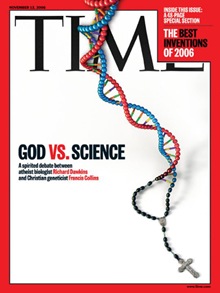 Science isn’t one solid continuum of knowledge, as it is often perceived. After all, if science was infallible and the proof presented was guaranteed truth, how comes phrenology is a debunked branch of medicine? Someone disproved it, and plenty of phrenologists kept the faith until the new trends in science took over and it died out (like so many religions of times gone by). And, if science is so unified and certain, what shape is the universe, and is it expanding or cyclular?
Science isn’t one solid continuum of knowledge, as it is often perceived. After all, if science was infallible and the proof presented was guaranteed truth, how comes phrenology is a debunked branch of medicine? Someone disproved it, and plenty of phrenologists kept the faith until the new trends in science took over and it died out (like so many religions of times gone by). And, if science is so unified and certain, what shape is the universe, and is it expanding or cyclular?
You can’t knock religion just because there’s no so-called proof in the philosophy, just the same as you can’t knock science just because it ignores the spiritual. Science IS a religion, because as much as we think we know it always seems to change. Is salt good bad for you this week? We take it as red that whatever is announced on the news as the latest scientific breakthrough is fact, just like people who accept the stories they’re told by priests.
So, science is a religion, which means the only difference between it and other religions is the spirituality. Where science looks for answers in the physical world all other religions are searching for answers in the spiritual world. Together, you might say, they form a yin-yang of existence, forming a complete harmony of the universe. Science is the understanding of the physical world, the tangible, quantifiable. Spirituality is the world beyond, the intangible, the immeasurable. You need to embrace both sides to find the true balance of infinity, the strikes and gutters of this eternal conundrum. We are all science and spirituality, we are body and mind. The human spirit is what you think and feel in your mind, and when twinned with the physical body’s feelings it creates a new state of being that we know and love. Life, man.
 And, with a true hold on both science and spirituality you can find out a lot more than only looking at half the facts. For example, so many people in this world like to look at things from a more rigid standpoint, drawing lines in the sand and sticking to their side. The problem you get with that is that when someone has a medical problem they sometimes go to a spiritualist to fix it. If it’s a physical problem, see a physical man. Get thee to a doctor, sir! Conversely, many people have spiritual problems and turn to a doctor who jacks them up on pills that cause as many problems as they solve. If it’s a trouble on mind, consult a spiritual mind, like a fellow Dudeist priest or a trained psychiatrist to help guide your spirit back into a state of mellowness. Don’t go stickin’ unleaded in a diesel engine, Dudes.
And, with a true hold on both science and spirituality you can find out a lot more than only looking at half the facts. For example, so many people in this world like to look at things from a more rigid standpoint, drawing lines in the sand and sticking to their side. The problem you get with that is that when someone has a medical problem they sometimes go to a spiritualist to fix it. If it’s a physical problem, see a physical man. Get thee to a doctor, sir! Conversely, many people have spiritual problems and turn to a doctor who jacks them up on pills that cause as many problems as they solve. If it’s a trouble on mind, consult a spiritual mind, like a fellow Dudeist priest or a trained psychiatrist to help guide your spirit back into a state of mellowness. Don’t go stickin’ unleaded in a diesel engine, Dudes.
Well, if science and spirituality are two sides of the same coin, doing the same thing but for each hemisphere of the universe, then maybe we’re stating to get some answers here. They’ve both been around a long time, for thousands upon thousands of years there has been philosophy to try and work out what it is that is. From primitives worshipping animal skulls and rubbing at sticks to making fire, to large spiritual institutions and well-funded science programs. And what have they all come up with? A hell of a lot of different answers, is the fact of the matter. Still waiting on those conclusive answers here, guys. Hmm, I’m starting to wonder if there is such a thing as a true answer.
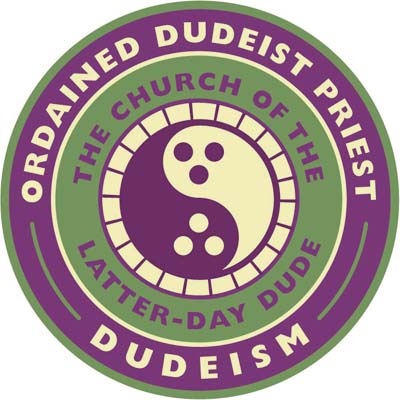 We here, at the Church of the Latter Day Dude, like to take science and spirituality in each hand, grasping the whole, not just the yin or the yang separately. We’ve got a triangle of hand-holding going on here, science and spirituality coming together in one balanced religion, willing to help reconcile these two warring enemies for the sake of true progress. But that’s just the thing. Where do we go to progress? Where do we find answers to the big questions within science and spirituality that haven’t so far been forthcoming?
We here, at the Church of the Latter Day Dude, like to take science and spirituality in each hand, grasping the whole, not just the yin or the yang separately. We’ve got a triangle of hand-holding going on here, science and spirituality coming together in one balanced religion, willing to help reconcile these two warring enemies for the sake of true progress. But that’s just the thing. Where do we go to progress? Where do we find answers to the big questions within science and spirituality that haven’t so far been forthcoming?
Let me try and answer using the wisdom of the Coen Brothers, through their brilliant movie, A Serious Man. A movie about Larry, a Jewish physics professor looking for answers. All day, in his job, he’s trying to teach his students about Schrödinger’s Cat and the conundrum of the cat’s uncertain state, somewhat unsuccessfully, leaving him with a waning faith in science itself and leaving the truth of physics to pure mathematics. The only other time we see him in a class room is during a dream when he’s trying to explain Heisenberg’s Uncertainty Principle, concluding to his pupils that "it proves that we can’t every really know what’s going on".
 As science throws new levels of doubt at him, his personal life also begins to suffer forcing him to seek guidance from his local rabbis who cannot seem to offer him a concrete answer. One himself seems to be looking for answers in the most unlikely places, clutching at spiritual straws. One spends a long time telling him an irrelevant story that has no real point and only creates more questions, shrugging them off by telling Larry "We can’t know everything". The only rabbi who seems to hold any understanding about the universe won’t talk to him, as he spends all his time in quiet contemplation between meeting with Bar Mitzvah boys to impart his own simple brand of Zen-like wisdom. The most we get out of him being offered to Larry’s son near the end of the movie, imparting back some stolen wisdom from the boy’s favorite song "When the truth is found, to be lies…" and the quiet, earnest nugget of "be a good boy". The film itself even begins with a quote from the medieval French rabbi known as Rashi "Receive with simplicity everything that happens to you". This becomes the mantra of the movie that the cast of characters seem to all be lacking knowledge of, apart from the sagely senior rabbi.
As science throws new levels of doubt at him, his personal life also begins to suffer forcing him to seek guidance from his local rabbis who cannot seem to offer him a concrete answer. One himself seems to be looking for answers in the most unlikely places, clutching at spiritual straws. One spends a long time telling him an irrelevant story that has no real point and only creates more questions, shrugging them off by telling Larry "We can’t know everything". The only rabbi who seems to hold any understanding about the universe won’t talk to him, as he spends all his time in quiet contemplation between meeting with Bar Mitzvah boys to impart his own simple brand of Zen-like wisdom. The most we get out of him being offered to Larry’s son near the end of the movie, imparting back some stolen wisdom from the boy’s favorite song "When the truth is found, to be lies…" and the quiet, earnest nugget of "be a good boy". The film itself even begins with a quote from the medieval French rabbi known as Rashi "Receive with simplicity everything that happens to you". This becomes the mantra of the movie that the cast of characters seem to all be lacking knowledge of, apart from the sagely senior rabbi.
 And what are the Coens trying to tell us? Is it the same thing that English dude, Douglas Adams, tried to tell us back in 1980 when Hitchhiker’s Guide to the Galaxy first aired on our radio waves and was born to the world? Is it that, we just can’t possibly know? No matter how much we delve into science or spirituality, we can’t know everything, and not everything is meant to be known. In HHGTTG Adams proposes to us that when one wants to know the answer to life, the universe and everything, you’re not going to get the right answer, because you’ve not understood and asked the right question to begin with. And to go back to the Coens and to quote again from A Serious Man, when Larry is given a supposedly illogical and impossible legal quandary that he can’t get his head around, he’s simply told to "accept the mystery" and is left gasping for another answer he’ll never get.
And what are the Coens trying to tell us? Is it the same thing that English dude, Douglas Adams, tried to tell us back in 1980 when Hitchhiker’s Guide to the Galaxy first aired on our radio waves and was born to the world? Is it that, we just can’t possibly know? No matter how much we delve into science or spirituality, we can’t know everything, and not everything is meant to be known. In HHGTTG Adams proposes to us that when one wants to know the answer to life, the universe and everything, you’re not going to get the right answer, because you’ve not understood and asked the right question to begin with. And to go back to the Coens and to quote again from A Serious Man, when Larry is given a supposedly illogical and impossible legal quandary that he can’t get his head around, he’s simply told to "accept the mystery" and is left gasping for another answer he’ll never get.
 So, the universe is a mystery we just have to accept, do you not think? The best way forwards is to reconcile the differences between science and spirituality under the umbrella of religion and take comfort in that. Worrying about things we cannot possibly know, and probably don’t need to know leads to all kinds of stresspasses that we Dudes can well do without. Even when we do ask questions, we shrug it off if the answer isn’t forthcoming, and isn’t that a great way to be? Maybe our newest slogan should be: "Dudeism, accepting the mystery since [2004]". After all, as The Big Lebowski’s own personal assistant (and those guys are paid to know) tells us: "Well, Dude, we just don’t know." But, I bet you already knew that…
So, the universe is a mystery we just have to accept, do you not think? The best way forwards is to reconcile the differences between science and spirituality under the umbrella of religion and take comfort in that. Worrying about things we cannot possibly know, and probably don’t need to know leads to all kinds of stresspasses that we Dudes can well do without. Even when we do ask questions, we shrug it off if the answer isn’t forthcoming, and isn’t that a great way to be? Maybe our newest slogan should be: "Dudeism, accepting the mystery since [2004]". After all, as The Big Lebowski’s own personal assistant (and those guys are paid to know) tells us: "Well, Dude, we just don’t know." But, I bet you already knew that…
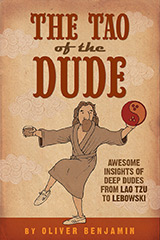

Seems to me that scienceologists can get a little uptight when they realise there’s a whole bunch of stuff out there that works real good which wasn’t cooked up in a lab’ – like say herbal medicine or meditation or yoga or jerking off manually. Science is okay at inventing shit actually it’s pretty fucking good at inventing shit. Problem is a lot of that shit is – well – shit. I don’t see religion causing a whole lot of pollution or global warming. Science is okay but it’s kinda over-reaching itself dude.
There are many roads leading to the top of a mountain. The only Dude who doesn’t get there is the one going round the bottom telling people they’re going the wrong way.
You can call your way anything you want, science or religion, but everyone gets where they’re going.
I dig your point Josh.
I believe it was Carlos Casteneda who wrote:
“Any path is just a path, so choose a path which has a heart”
There’s a stark difference between science and religion that seems to be glossed over in this article: the true application of science calls for practitioners to actively look for problems or weak spots in theories, so that they may be corrected and re-worked as new information and research comes to light, whereas religion encourages followers to accept what their preachers/priests/reverends/what-have-you tell them simply because they have authority to do so (authority granted by that same church, i might add. The beautiful thing about science is that even a 12 year old kid can introduce a new theory or disprove one; as long as the claim is scientifically verifiable and reproducible under laboratory conditions, it will stand. Science is an ongoing process of discovery: we come up with a theory that best explains the information available at a given time, and revise it as our understanding of the topic becomes more refined; anyone who tells you that science has ‘proven’ something either does not understand how science works, or is lying to you. Religion, on the other hand, has no standards of reproducibility or peer-review, in fact, entire doctrines have been written on the basis of a chance encounter with an angelic messenger or deity that cannot be verified or reproduced; one simply has to take the word of whoever experienced it. Shit, Mormonism is based completely on one dude’s visions that, according to their doctrine (which he wrote…) were only visible to him because he was ‘chosen’. As for religion changing with the times by branching off into different sects and such, and scientists who still refer to older ways of thinking even when they’ve been dismissed by the scientific community at large, that IS an example of where science and religion share common ground, but only in the sense that it’s people practicing these things, and people hate to be wrong. But that’s just, like, my opinion, man
@ Blue$ I dig your contribution, man :D
One of the best things about writing for the DP is that my final word in the article is not the final word on the subject. Where I leave off I always enjoy where others continue. As such, my hat goes off to you for your opinion and the willingness to share it. For with only my opinion, it’s a rather stale subject with my limited scope, but as a jumping point for discussion and addition it enrichens the whole thing nicely :)
I can only apologise for glossing over the point you’ve made, but my articles are often deemed long enough as they are (and confusing enough, for that matter… Dude Simple serves as a pun and an irony in one!). My points were focused on the similarities and bringing the two disciplines of science and spirituality closer, but that doesn’t rule our their many differences. They’re not the same, but they are kindred in my opinion, and that was my ultimate message in the article. Don’t ignore one and hug the other, shake hands with them both :)
So yes, I wholeheartedly argee with you on your points. Science is definately the black sheep of the faiths in many, many regards, and more people approach it with rational and sceptisism than people follow it blindly. But then you can say the same about other faiths, that more follow it blindly, but some seek reason and are careful about what conclusions they make and profess.
We Dudeists are of the gentle opinion that goes along the lines of “we just don’t know”, so don’t like to place bets but do give the odds a good going over out of interest. So we’re pretty good on both science and spirituality. One does not, should not and cannot prove or disprove the other. They are the yin and the yang. And as similar as the yin and yang are, they are also opposites. If’n ya catch my drift :)
yeah baby. Like science is good if you want your kettle to boil faster but don’t look to it if you’re feeling low on love. There is a kind of natural up-tightness thing going on with science. Just relax and let the kettle take its time dude!
Most of modern physics and science are based on imagined thought experiments and imaginary numbers like the square root of negative one. Advanced math is based on concepts that cannot be seen or measured just like god, so don’t negate spirituality based on the inability to perceive or measure it. (all Credit to Ken Wilber)
Sorry but hating religion is very undude. Some of your first scientist were priests or monks. In fact the standard model based on the big bang theory was first theorized by a Catholic priest who approached Hubble ad Einstein who rejected his theory at first but later accepted his theory and this is the theory we have in place right now.The standard model was created by a Catholic priest. The God Particle knows.
Here’s an inneresting look at the science of awe…might help us see what condition our condition is in.
http://www.upworthy.com/this-video-is-literally-awesome-literally?g=2&c=ufb1